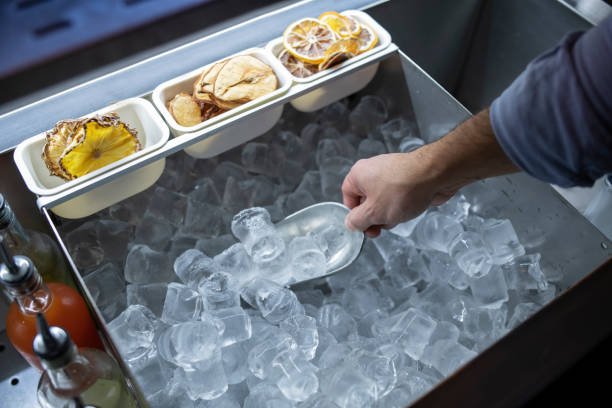Melbourne, known for its vibrant culture and innovative spirit, has a rich history in mechanical engineering and automotive development. From its early days of horse-drawn carriages to the cutting-edge electric vehicles of today, Melbourne’s mechanical industry has undergone a remarkable transformation, reflecting broader technological advances and shifts in societal needs.
Early Beginnings: Carriages and Early Automobiles
In the 19th century, Melbourne’s mechanical industry began with the production and maintenance of horse-drawn carriages. The city’s thriving population and growing economy created a strong demand for reliable transportation. Local blacksmiths and carriage builders played a crucial role in shaping the early transport landscape. Workshops in areas like Collingwood and Richmond were bustling with activity, crafting carriages that would transport Melbourne’s burgeoning middle class.
With the dawn of the 20th century, the introduction of automobiles marked a significant shift. Melbourne’s mechanical industry quickly adapted to this new technology, with local businesses starting to focus on automotive repairs and manufacturing. The establishment of companies such as Holden, which would later become a cornerstone of the Australian automotive industry, underscored Melbourne’s growing role in this sector.
Post-War Boom: Expansion and Innovation
The post-World War II era brought a period of rapid expansion and innovation to Melbourne’s mechanical industry. The city became a hub for automotive manufacturing, thanks in part to government incentives and a burgeoning local market. During this time, Melbourne saw the rise of several significant players in the automotive sector, including the establishment of the Australian Motor Industries (AMI), which produced popular models like the Toyota Corolla.
This period also witnessed the development of Melbourne’s mechanical engineering sector, with the rise of institutions and companies focusing on research and development. The Melbourne University’s Engineering Faculty, for instance, became a key player in advancing mechanical engineering education and research, contributing to innovations that would impact both local and international markets.
Modern Era: Embracing Sustainability and Technology
As the 21st century progressed, Melbourne’s mechanical industry faced new challenges and opportunities with the shift towards sustainability and advanced technologies. The rise of electric vehicles (EVs) and renewable energy sources has prompted local companies and institutions to pivot towards greener solutions. Melbourne has embraced this transition, with initiatives aimed at reducing the carbon footprint of the automotive sector and promoting sustainable practices.
Local companies, such as the electric vehicle startup “EV Innovation Melbourne,” are at the forefront of this shift, developing cutting-edge EV technology and contributing to the global push towards cleaner transportation. Additionally, Melbourne’s universities and research institutions continue to play a pivotal role in advancing mechanical engineering, focusing on areas like robotics, AI integration, and energy-efficient technologies.
The Future: A Vision for Growth
Looking ahead, Melbourne’s mechanical industry is poised for continued growth and transformation. The city’s emphasis on innovation and sustainability is expected to drive future developments in automotive technology, including advancements in autonomous vehicles and smart infrastructure. The integration of AI and machine learning into mechanical systems promises to open new avenues for research and commercial applications.
Moreover, Melbourne’s supportive ecosystem for startups and tech entrepreneurs provides a fertile ground for new ideas and ventures in the mechanical field. The city’s commitment to fostering innovation, coupled with its strong educational institutions and collaborative networks, positions it as a leader in shaping the future of mechanical engineering.
Conclusion
From its humble beginnings with horse-drawn carriages to its current status as a hub for electric vehicles and advanced technologies, Melbourne’s mechanical industry has demonstrated remarkable adaptability and growth. The city’s rich history in mechanical engineering reflects broader trends in technology and sustainability, and its future looks bright with ongoing innovations and a commitment to a greener, more connected world. As Melbourne continues to evolve, its mechanical industry will undoubtedly remain at the forefront of shaping the future of transportation and engineering.Melbourne, known for its vibrant culture and innovative spirit, has a rich history in mechanical engineering and automotive development. From its early days of horse-drawn carriages to the cutting-edge electric vehicles of today, Melbourne’s mechanical industry has undergone a remarkable transformation, reflecting broader technological advances and shifts in societal needs.Melbourne, known for its vibrant culture and innovative spirit, has a rich history in mechanical engineering and automotive development. From its early days of horse-drawn carriages to the cutting-edge electric vehicles of today, Melbourne’s mechanical industry has undergone a remarkable transformation, reflecting broader technological advances and shifts in societal needs.Melbourne, known for its vibrant culture and innovative spirit, has a rich history in mechanical engineering and automotive development. From its early days of horse-drawn carriages to the cutting-edge electric vehicles of today, Melbourne’s mechanical industry has undergone a remarkable transformation, reflecting broader technological advances and shifts in societal needs.




